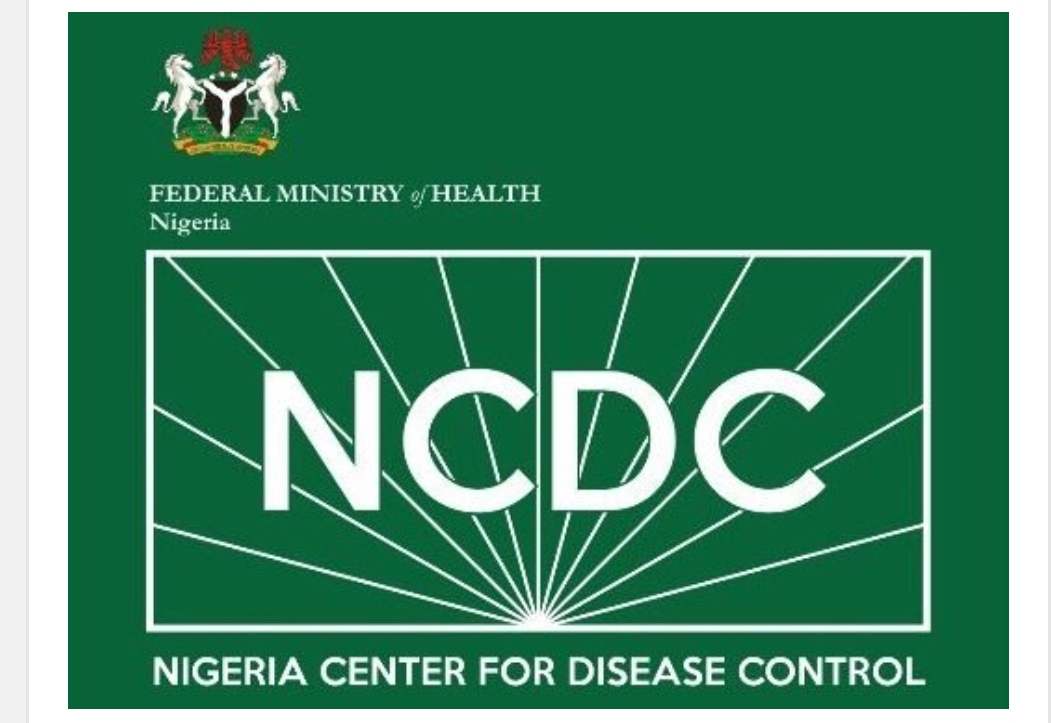Cholera: NCDC raises alert as 30 die in 6 months
The Nigeria Centre for Disease Control and Prevention (NCDC) has alerted the public about the increasing trend of cholera cases across the country as the rainy season intensifies. In a public health advisory on Wednesday signed by the Director General of NCDC, Dr Jide Idris, the agency said a total of 1,141 suspected and 65 […]

The Nigeria Centre for Disease Control (NCDC)
The Nigeria Centre for Disease Control and Prevention (NCDC) has alerted the public about the increasing trend of cholera cases across the country as the rainy season intensifies.
In a public health advisory on Wednesday signed by the Director General of NCDC, Dr Jide Idris, the agency said a total of 1,141 suspected and 65 confirmed cases of cholera, with 30 deaths, had been reported from 96 LGAs in 30 states from the January 1 to June 11, 2024.
Dr Idris said the 10 states that contributed 90 per cent to the burden of cholera were Bayelsa, Zamfara, Abia, Cross River, Bauchi, Delta, Katsina, Imo, Nasarawa and Lagos.
He said the multi-sectoral National Cholera Technical Working Group, led by the NCDC, and comprising the Federal Ministries of Environment and Water Resources, the National Primary Health Care Development Agency (NPHCDA), the World Health Organisation (WHO), United Nations Children’s Fund (UNICEF) and other partners, hasd been providing support to the affected states.
- Sokoto metal poisoning: Nigeria, Niger strengthens border surveillance
- Traders protest military siege, closure of market in Abia
He explained that, “This support includes risk communication, active case search, laboratory diagnosis, case management, provision of response commodities, Water Sanitation and Hygiene (WASH) interventions and dissemination of cholera awareness jingles in both English and local languages.”
To reduce the risk of cholera, he advised the public to do the following:
- Ensure that water is boiled and stored in a clean and covered container before drinking.
- Practice good personal hand hygiene by washing your hands frequently with soap under clean running water.
- Use alcohol-based hand sanitizer if soap and clean water are not available.
- Ensure that food is well-cooked before consumption. Only consume raw food such as fruits and vegetables, after washing thoroughly with safe water. After cooking food or boiling water, protect against contamination by flies and unsanitary handling. Left over foods should be thoroughly reheated before ingestion. Persons with diarrhoea should not prepare or serve food or haul water for others.
- Avoid open defecation, indiscriminate refuse dumping. Ensure proper disposal of waste and frequent clearing of sewage.
- If you or anyone you know experiences sudden watery diarrhoea, please do not self-medicate, visit a healthcare facility immediately.
Cholera is a food and water-borne disease caused by the ingestion of the organism, vibrio cholera, in contaminated water and food.
Water is usually contaminated by the faeces of infected individuals.
The NCDC said beverages prepared with contaminated water and sold by street vendors, ice, and even commercial bottled water, had been implicated as vehicles of transmission, as well as cooked vegetables and fruits freshened with untreated wastewater.
NCDC further said, “The time between infection and the appearance of symptoms is two hours to five days. It has a higher risk of transmission in areas that lack adequate sanitation facilities and/or a regular supply of clean water. Unsafe practices such as improper disposal of refuse and open defecation endanger the safety of water used for drinking and personal use.”
